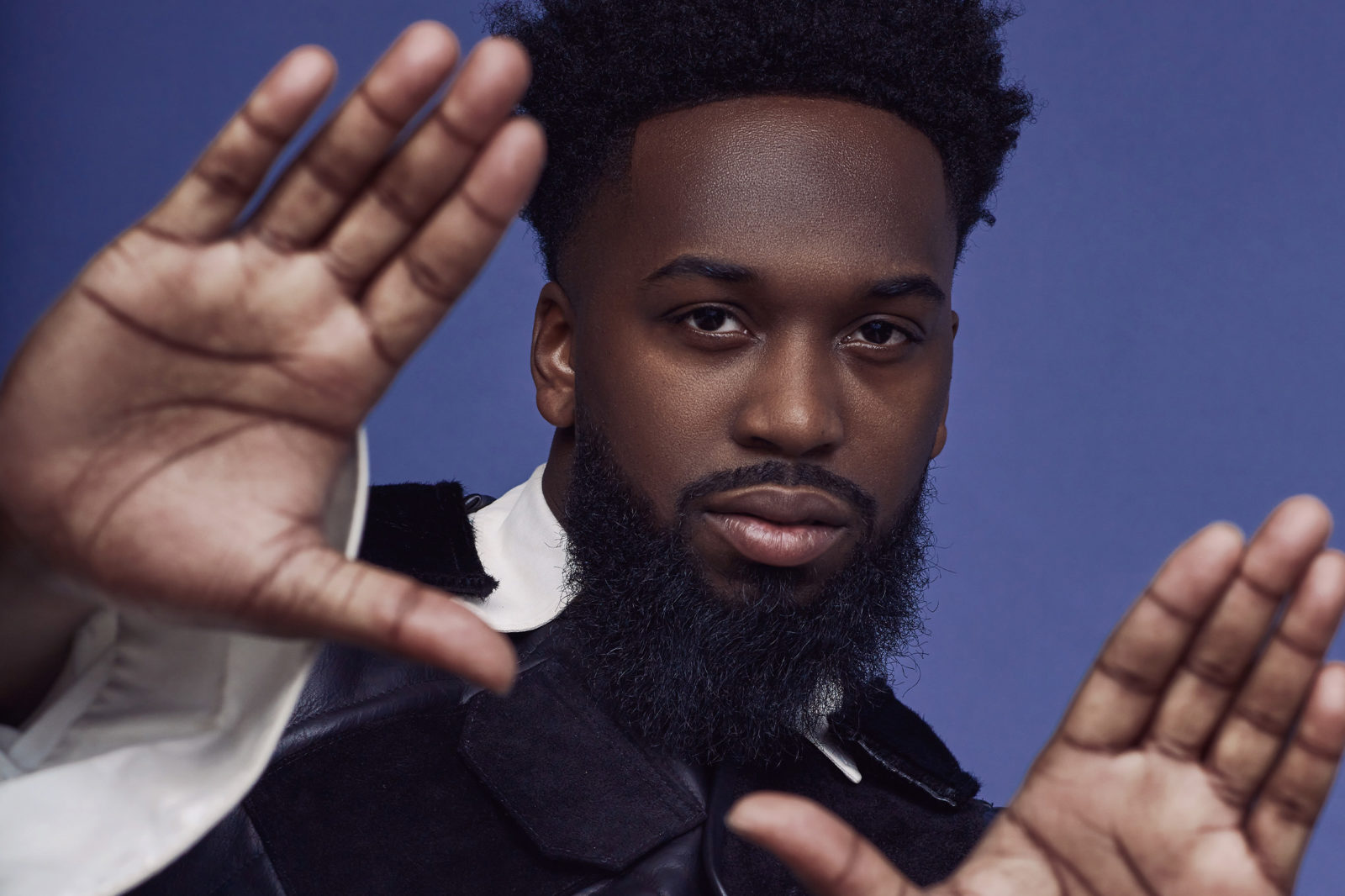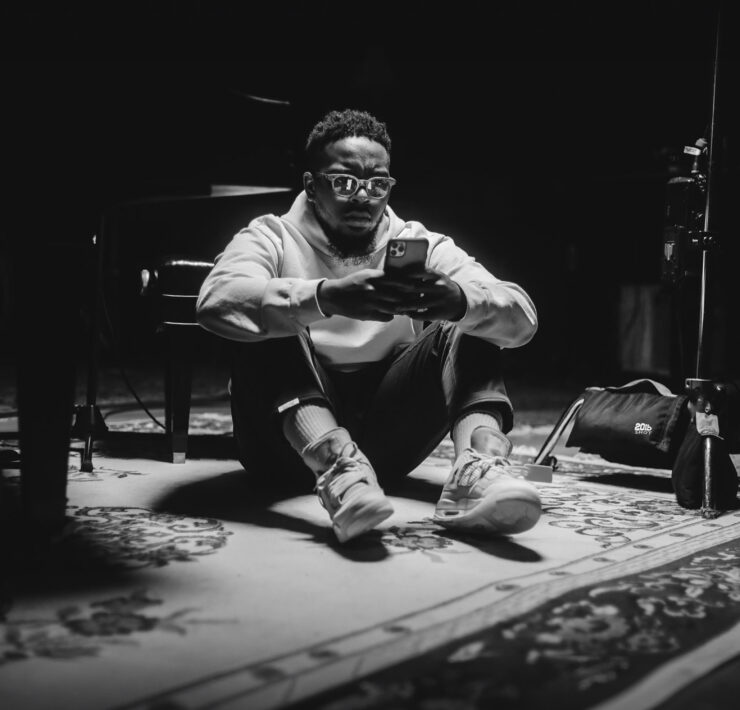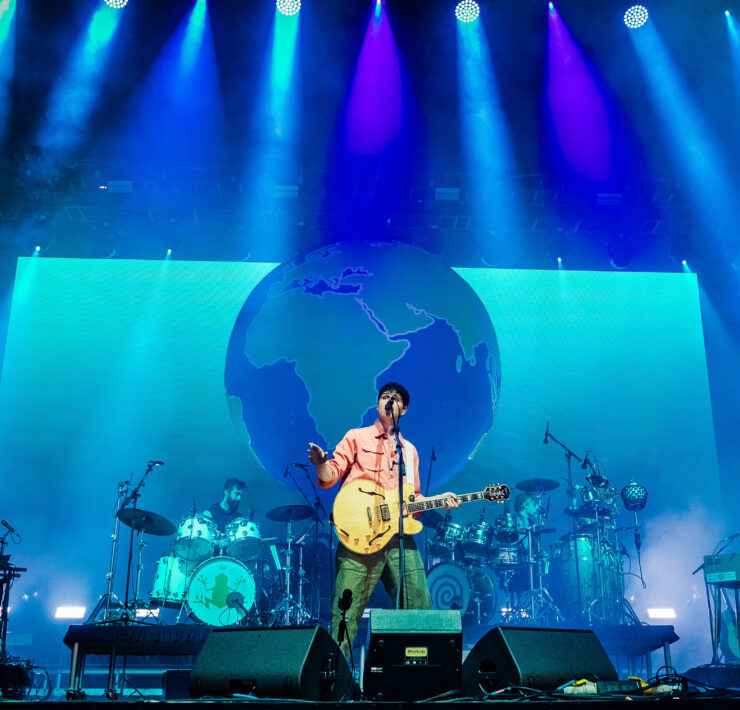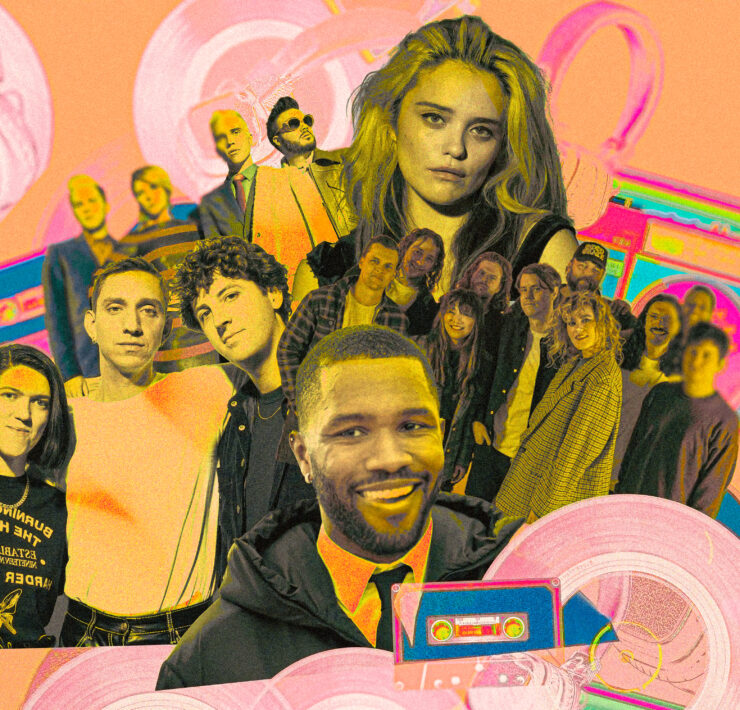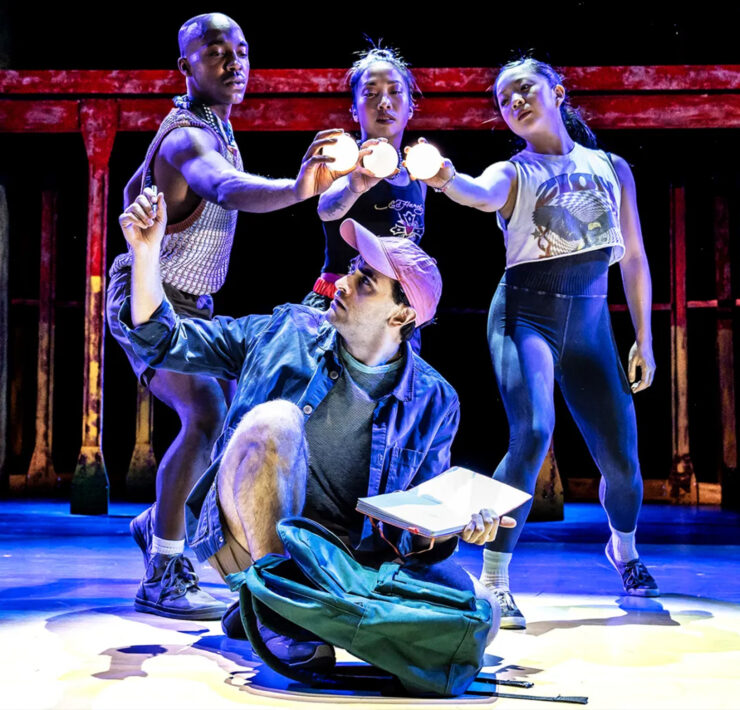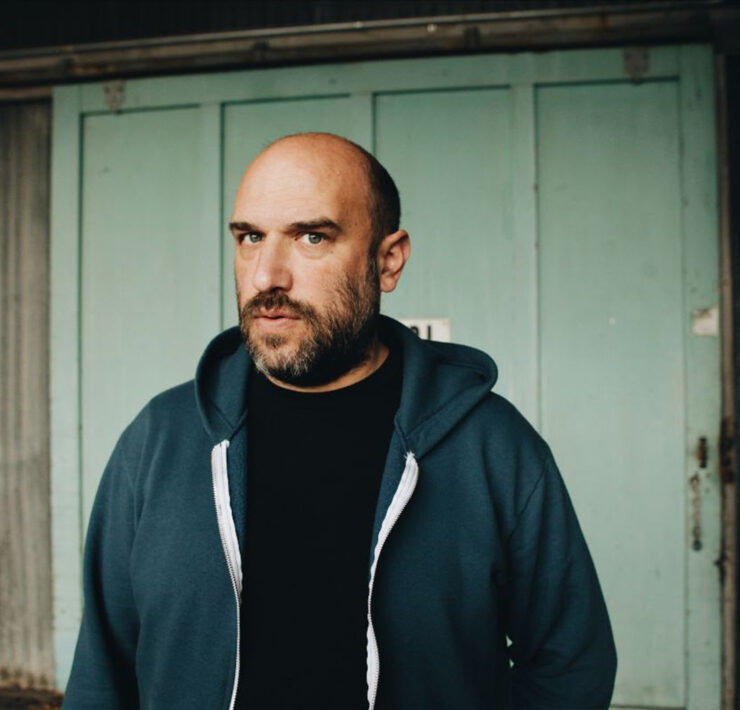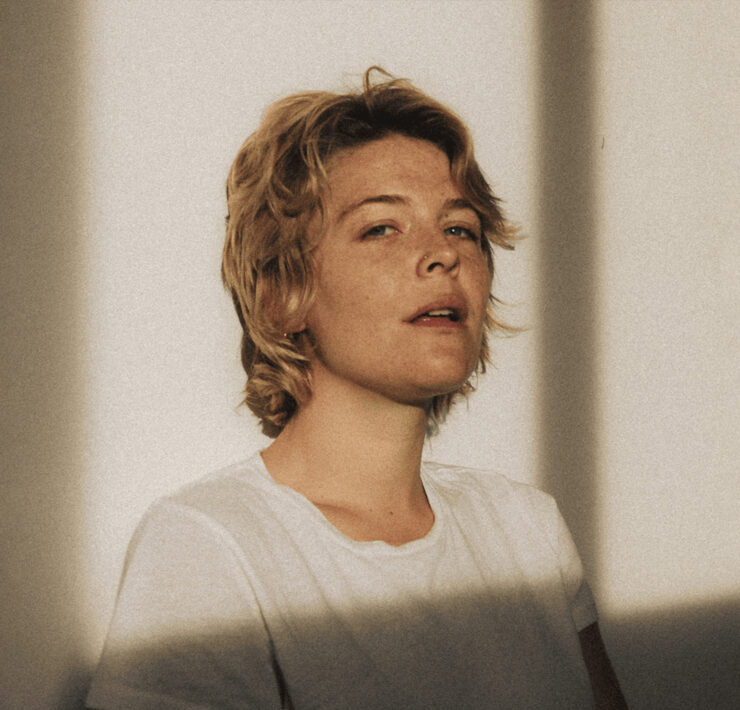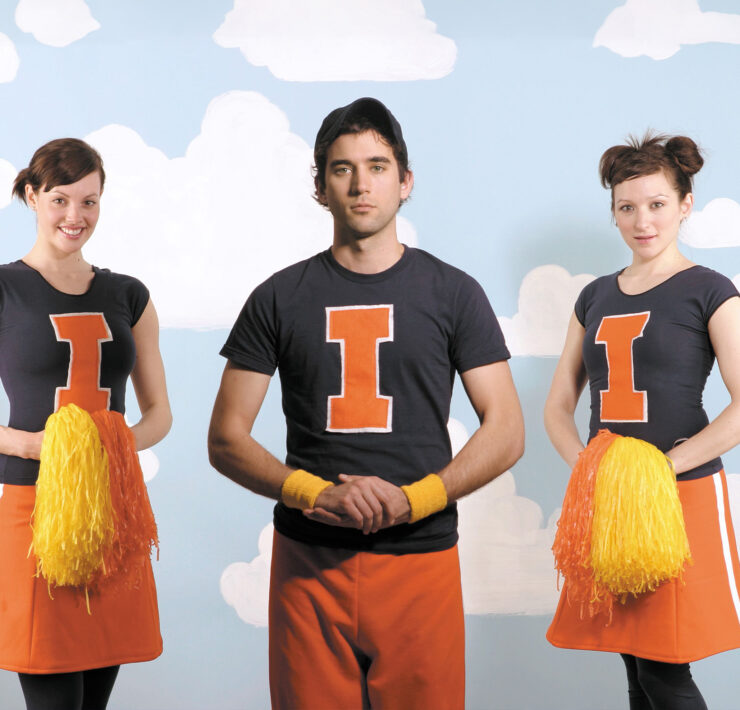Dante Bowe already feels like he’s been here forever. The multi-talent singer, worship leader and songwriter has become a fixture of the modern church music scene as a member of Maverick City Music. Mav City has so quickly and excellently raised the worship music bar that it was only a matter of time before its members began seeking out other way to express their creative energy. And now, Bowe has one in circles, which is out today (Friday, 3/26). It’s his first solo project, and it captures a man stretching his wings musically, lyrically and thematically. He talked to us about branching out, overcoming childhood obstacles and trying to inject substantive joy into culturally fraught times.
This conversation has been lightly edited for length and clarity.
Can you give me a snapshot of your background?
I was raised in Rockingham, North Carolina in a musical family who loved gospel, loved R&B and hip-hop. When I was 16, I dedicated my life to God and started doing Christian music and working in studios. My mom would just take me to any audition they could take me to. I think I did American Idol, the Voice, all the stuff.
Ultimately it led me to creating my own music and that music started creating its own buzz. It wasn’t as quick, obviously. There was a season where I was homeless. In 2019 I started to see the fruit of my labor and writing for a bunch of folks. Signed my first record deal with Bethel Music and started recording with Maverick.
When did you realize that you could write too? When did you get the writing bug?
I was dyslexic pretty much until I was 16 years old and that was a huge struggle. I hated anything that had to do with literature, but I was a storyteller. I had a huge imagination. I was that one kid with the broomstick like it was a sword, bro. I’d sing into the shampoo bottles in the shower.
We were just outdoorsy country kids, me and my brother, but we had huge imaginations and I would always tell stories. And then I guess I had to be maybe 10 when I realized I could write. It was a rap I wrote for my dad. It was so stupid, but I remember he thought it was great. That helped me continue to just write more.
At what point did Maverick City come into the picture for you?
Well, at first, there was no such thing as Maverick City. It was just the group of friends in a text message. It was five of us and we were like, “We should come together and write songs.” One of the guys that was in the group text, he was like, “What about one of my really good friends, Brandon Lake? That’d be fun.” And we were like, “Sure, yeah, we don’t know this guy but bring him.” Turns out he’s the worship guy now.
We all came together in Atlanta at Passion City that would just run a bunch of songs, which is volume one and volume two. Obviously Tasha Cobbs’ and a bunch of other people’s songs were written in those rooms as well. And we put out that demo-ish first Volume One. But before we put it out, we were like, “We got to name it something.” And since we were an Atlanta-based thing, they used to call Atlanta the Maverick City. So we just named it that.
Why do you think Mav City has been so successful?
The secret sauce to Maverick City is there’s different kinds of people. It’s different cultures coming together and writing their stories together. Every song is this collaborative effort to communicate. Four or five different people’s stories. It’s not necessarily pointing to one culture or one thing. This is for everybody. Everyone could find themselves in Maverick City.
Did you have a moment when you realized, “I think I’m ready to do my own thing to release a solo album.”
I’ve always said I was a solo artist who does collective things with Bethel and with Maverick. I’ve always thought about my projects and what I want to release as a solo artist. With this specific project, I had two other albums before this that I threw away.
I’ve only released one of those songs, and that was “Be All Right.” “Be All Right” was going to be the single of the project I was going to put out. I just felt there was more to say, and I wanted to reflect the times more. And I wanted to reflect my culture, where I come from, speaking to the future and talking about the joy and the good stuff. It took about two years to finish. And this is that project.
You said you wanted to speak to the times more. What do you mean by that?
The racial tensions and how it’s felt for me being a Black man in the midst of all of this. Not only that, but being a Black man with influence everywhere, in so many different cultures. When I say something, so many different kinds of people listen. I wanted to enlighten with my music and not just write songs that are like, “Painting the sky with rainbows” and stuff. It is lighthearted, but the message is potent, and that’s kind of what I want. I want people to finish with this album and say, “Man, I feel more aware, and just feel more uplifted.” I wanted to just enlighten people about the racial tensions — not anything super, super heavy, but real life stuff. Whether it’s somebody dealing with sickness, or somebody dealing with addiction and stuff like that, that’s all in the album.
Has it been hard for you to convince people that there’s an audience for something like this?
It was an inward challenge. Sometimes we get in our own heads about what we’re doing as far as art is concerned. Instead of giving people a journey with your music, we just want to do what they love already and not push them forward.
But my label and my team are just so supportive; my family is so supportive; my friends. But as far as my fans and people that support me and love me, I mean, I never really tried to convince them. I try to give them the truth in my music, because if I were them, I would want the truth. I try to give them creative new launches, new ways to say things and new ways to sing things, new ways to play things, because that’s what I would want from my favorite artist.
So my first single, “Joyful” is completely different. People had a journey with my music and now they’re attached. I didn’t give them what’s normal. I gave them something that they’d have to grow into. Some people didn’t have to grow into it. Some people were like, “Yes.” But some people are like, “I don’t know.” And then the next song, they’re like, “I love this.” I think as an artist, somebody said, “Good art keeps people asking questions and bad art gives you all the answers.” So I’m trying to make good art.
You were just talking about “Joyful.” Why is that the first single?
We felt like for the times that “Joyful” was a message that felt important, you know what I mean? Choosing joy just felt more relevant — no pun intended — than anything right now. I think we wanted to just start the album off with, “You know what, this has been one crazy year, but we’re going to be joyful.”
You’re a Christian who’s writing at a time where there’s a lot of fear. You’re a Black man who’s making music at a time there’s an enormous amount of anti-Black sentiment. It seems that you’d feel a lot of pressure.
There is a lot of pressure but it’s a healthy pressure. I don’t feel a burden, but I do feel a weight attached to what I’m doing and what I’m saying.
Being a man who is super, super close to his family, my grandmother and grandfather, I know all about their journeys and I know about my great-grandmother’s journeys and stuff like that. And I do feel like there’s an obligation there to tell these stories. This is a part of your lineage, this is your life. If people are buying Dante Bowe music, they need to know about Dante Bowe. That’s who I am.








